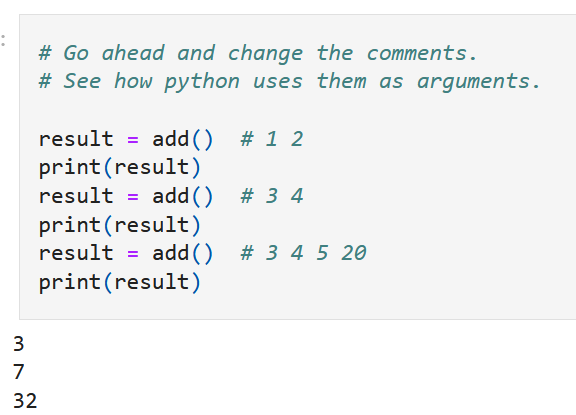this post was submitted on 21 Nov 2024
190 points (97.5% liked)
Programmer Humor
32533 readers
761 users here now
Post funny things about programming here! (Or just rant about your favourite programming language.)
Rules:
- Posts must be relevant to programming, programmers, or computer science.
- No NSFW content.
- Jokes must be in good taste. No hate speech, bigotry, etc.
founded 5 years ago
MODERATORS
you are viewing a single comment's thread
view the rest of the comments
view the rest of the comments

The
add()function (that is available in the source code) basically uses some built in debugging tools to find out where in the code the function is called, and then parses the comment from the file and uses it for adding stuff.I’ve never tried (becuse why would you…) but something similar can probably be built in any interpreted language
It’s not something Python does by design
Thanks :) ! Could you tell me what use case/purpose such function can have from a dev perspective?
This stuff is normally used for creating human readable error messages. E.g. printing the line of your code that actually set off the exception
We actually use method comments for user documentation as well. Only on specific business methods, but it's nice to have a good comment for the dev and a tooltip for the user at the same time.
I'd say nothing that can't be achieved by docstrings.
This specific use case? To make a meme, mainly ¯\(ツ)/¯
As for the components: Parsing comments have been used for stuff like type hints / formatting / linting, tho generally not at run time (afaik).
The tooling for finding out where something is called from can be used to give a better understanding of where things go wrong when an exception happens or similar, to add to logs.
I would say that in general you don’t need either functionality except for certain edge-usecases
Thank you ! 😄